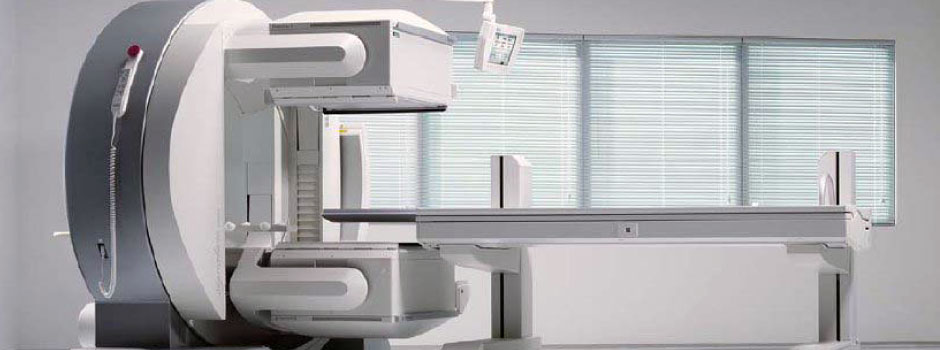Nuclear imaging is a diagnostic tool used to accurately visualize the flow and function of different organs of your body. Radiation levels, in most cases, are equal to or less than a routine X-ray or CT examination. Nuclear medicine examinations help a doctor determine if an organ or other tissue is healthy or damaged. The resulting images aid in disease or injury diagnosis and determining adequate treatment. Common procedures that use nuclear imaging include thyroid studies, bone scans, lung scans, gastric emptying and liver and gallbladder procedures.

Nuclear medicine, invented in the 1930s, advanced the field of diagnostics without surgery. As well, nuclear imaging today offers more modern techniques for diagnosis. Prompt diagnosis of injury or diseases of the body is one advantage of nuclear imaging. This noninvasive technique does not rely on surgical exploration.
Combined with other diagnostic procedures such as magnetic resonance imaging (MRI) and computed tomography (CT) scans, nuclear medicine is a powerful tool. Such detailed views of interior organs help with diagnosis and treatment options.
Nuclear medicine benefits prompt diagnosis of conditions such as bone disorders, gastrointestinal disorders or heart disease.
This type of diagnostic imaging requires special preparations before the test. Your technologist will call you the day before your exam to explain the test and answer any questions. They will also confirm your appointment so we can order your medicine.
A liquid filled with radiotracers is either swallowed, injected, or inhaled.
During the test, you will lie down on an examination table. The equipment used will depend on the type of scan requested by your doctor.
Nuclear scans are non-invasive and painless. The noise made by some of the equipment might be alarming to some patients, so we provide ear plugs on request.
Nuclear imaging is no more dangerous to patients than regular X-rays or CT scans. Risk is minimal when compared to the benefits of early detection and diagnosis of a disease. Only small amounts of radioactive materials are used in a nuclear imaging scan.
Doctors limit doses of radiotracers to the least amount to produce desired images.
Benefits of nuclear imaging outweigh small risks. Nuclear imaging enhances the prompt diagnosis of injury or disease processes. Early diagnosis enables timely treatment.
For more detailed information about the nuclear medicine services
offered by Premier Diagnostic Imaging, Email or Call Us at (931) 528-1800.